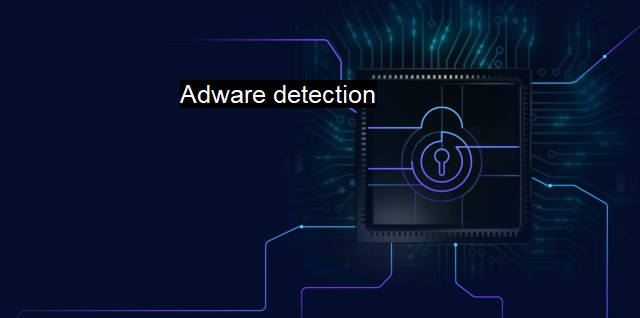What is Adware detection?
Adware Detection: Protecting Your Device from Threats of Malware in Online Ads
Adware detection is an essential component of cybersecurity and necessitates an effective antivirus program for its successful execution. As per the technological terminology, "adware" refers to software that automatically displays or downloads advertising materials, such as banners or pop-ups when a user is online. While not inherently harmful or malicious, adware often comes without the consent or awareness of the user, leading to frustration due to the frequent disturbances during online activity. It can slow down the computer system, alter browser settings, track and sell users' data to marketing companies.Adware is classified as a potential unwanted program (PUP). Despite not causing direct harm to your digital assets, adware can make you vulnerable by creating gateways that more destructive malware, like spyware or ransomware, can exploit. Adware not only interrupts your digital experiences but potentially leads to significant digital threats. So, it becomes absolutely crucial to detect and remove adware from your systems as soon as possible. This is where adware detection comes into play.
Adware detection is the process involved in identifying and eliminating adware from a computer system. This is usually accomplished with the help of antivirus software or antispyware software specifically designed to find and remove types of adware. It is a critical component in the broader cybersecurity framework, aiding in maintaining the health, safety, and overall functionality of your computer.
Adware detection software works by scanning computer files and directing the user to websites and applications where adware-related activities are present. It indicates to the user that a particular file/application is potentially unwanted and hence needs to be handled securely – by not accessing it or deleting it for good. It combats predominant forms of adware, helping prevent numerous adverse outcomes linked with these seemingly innocuous looking software particles.
Many advanced antivirus programs now include adware detection in their suite of protection tools. The use of machine learning and artificial intelligence enhances these security programs' power to recognize both existing and evolving adware threats, thus contributing to stronger adware detection techniques. Subsequently, they can scrutinize the potential harm these programs could leverage on valuable data and your computer, and provide decisive steps to eliminate them.
The measure of adware detection necessitates you as a user to stay vigilant and equip yourself with a few good practices for implementing adware defense. Keeping your operating system, browser, and software programs up to date can be an excellent practice to fortify your defense against adware attacks. Alongside this, you should choose to download apps or software from trusted platforms and practice keeping a keen eye while installing any new software to validate if it's bringing along any unwanted adware or other dicks.
Therefore, adware detection, the backbone of a strong cybersecurity defense module, should be seen as a systematic approach to ensure your system is secure, your data is protected, and your online work and leisure activities go unaffected. Combining the right antivirus tools, consistent system updates, and vigilant practices can make your adware defense unstoppable. In the transforming era of digital penetration, protecting your digital zone isn't optional anymore - it's undebatable, and to do that, adware detection is indispensable.

Adware detection FAQs
What is adware detection?
Adware detection refers to the process of detecting and removing adware from a computer or network system. Adware is a type of malicious software that displays unwanted ads on a user's computer or browser without their consent, and can potentially collect personal information.How does adware detection work?
Adware detection works by using antivirus software that scans a computer or network system for known adware signatures and patterns. The software then flags any suspected adware and allows the user to remove or quarantine the file. Some antivirus software also includes real-time protection that can detect and block adware as it attempts to install itself on the system.Why is it important to have adware detection on my computer or network system?
It is important to have adware detection on your computer or network system because adware can compromise your privacy and security. Adware is often bundled with other types of malware such as spyware or ransomware, which can steal sensitive information, encrypt data, or damage systems. Adware can also slow down your computer or browser, consume resources, and make it difficult to browse the internet effectively.How can I prevent adware from infecting my computer or network system?
To prevent adware from infecting your computer or network system, you should always use reputable antivirus software that includes adware detection and real-time protection. You should also be cautious when downloading and installing software or files from unknown sources, and avoid clicking on suspicious ads or links. Keeping your operating system and software up-to-date with the latest security patches can also help prevent adware infection.| | A | | | B | | | C | | | D | | | E | | | F | | | G | | | H | | | I | | | J | | | K | | | L | | | M | |
| | N | | | O | | | P | | | Q | | | R | | | S | | | T | | | U | | | V | | | W | | | X | | | Y | | | Z | |
| | 1 | | | 2 | | | 3 | | | 4 | | | 7 | | | 8 | | |||||||